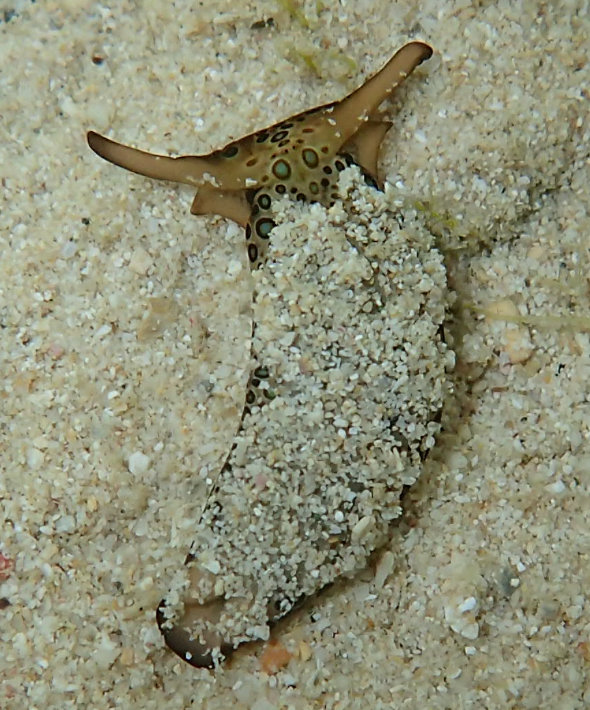Illumination Extend the Survival Time of The Sea
Slug Retaining Chloroplasts Under Starvation
Plakobranchus ocellatus
retains functional chloroplasts in the digestive gland (kleptoplasty).
In the long starvation experiment, the photosynthetic function of the
chloroplasts was almost normal for 2 months, regardless of the presence
or absence of illumination, and then gradually decreased. Although the
relative weight of the animal gradually decreased from the beginning of
the experiment without illumination, the decrease of relative weight
appeared slow or unclear during the first 2 months in the experiment
with illumination and the sea slugs survived up to 5 months, suggesting
that photosynthesis in the retained chloroplasts could maintain the sea
slug for months under starvation. The retention of chloroplasts may be
important for P. ocellatus to
occur throughout the year in a subtropical environment.

Read the full article, published by Zoological
Studies, here
Follow Zoological Studies on
Twitter @ZooStudies
and Facebook
